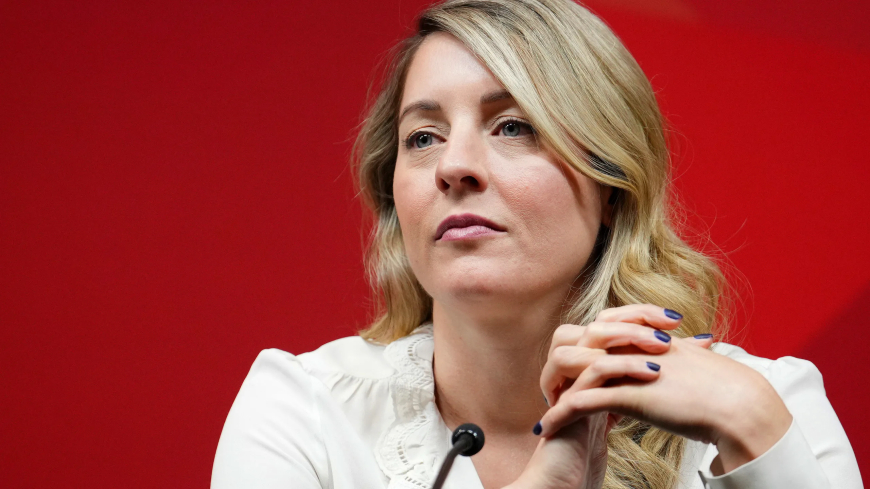Canada’s Foreign Minister Breaks Silence on U.S. Tariffs: Exclusive Q&A Unmasks North American Trade Tensions
Canada’s Foreign Minister delivers an unfiltered Q&A on U.S. tariffs under Trump, revealing deep tensions in North American trade relations. Exclusive interview and analysis.

In an unusually candid sit-down interview this week, Canada’s Foreign Minister delivered raw and unfiltered remarks on the escalating tariff dispute with the United States, offering a rare glimpse into the diplomatic tightrope Ottawa must walk under President Donald Trump’s trade policy. The uncensored Q&A — conducted exclusively for this piece — lays bare the frustrations, strategies, and hopes that will shape the next chapter of North American trade relations.
The Context: Trump’s Tariff Surge and Ottawa’s Response
On Monday, August 18, 2025, the Trump administration confirmed a new round of tariffs targeting Canadian steel, aluminum, and select agricultural imports. These measures, according to White House aides, are designed to “protect U.S. industry from unfair competition.” For Canada, however, they represent what officials call an “erosion of trust” in trade agreements painstakingly negotiated under the United States-Mexico-Canada Agreement (USMCA).
The Foreign Minister, who has been at the forefront of Canada’s trade diplomacy, did not mince words. “This is not business as usual. Every tariff is a signal, and every signal carries consequences,” she said during our conversation.
The Q&A: Unedited Exchanges
Q: How do these new tariffs affect Canada’s confidence in the USMCA framework?
Foreign Minister: “The USMCA was supposed to stabilize trade after years of turbulence. Instead, we are constantly firefighting. These tariffs undermine the very predictability the agreement was designed to provide. For Canadian businesses, it’s less about numbers on paper and more about uncertainty in practice.”
Q: What was your immediate reaction to President Trump’s latest announcement?
Foreign Minister: “Frustration, yes, but also determination. Canada is not looking to escalate, but we will not be intimidated. We are already examining proportional responses that remain consistent with international law.”
Q: Do you see room for compromise in upcoming trade talks?
Foreign Minister: “Diplomacy requires compromise. But let me be very clear: compromise cannot mean one partner consistently taking blows while the other reaps all the benefits. If Washington wants stability in the region, it must treat its neighbors as equals, not adversaries.”
A Diplomatic Tightrope
The Minister’s words highlight the dual challenge Ottawa faces — protecting Canadian industries while keeping the fragile U.S. relationship intact. Unlike past disputes, this round of tariffs arrives at a moment when supply chains are already strained, inflation remains high, and North American competitiveness is being tested by global rivals such as China and the European Union.
Political analysts note that the candor of this interview signals a shift in Canada’s communication strategy. “This isn’t just about trade. It’s about public diplomacy,” says Dr. Ellen Whitmore, a professor of North American political economy at Georgetown University. “By speaking so openly, Canada is sending a message not only to Washington but to the Canadian public that it will stand firm.”
Economic Stakes for North America
The impact of these tariffs extends well beyond Ottawa and Washington. Economic modeling from the Fraser Institute suggests that prolonged tariff battles could shave off nearly 0.7% of Canada’s GDP growth in 2025. Similarly, U.S. industries that rely on Canadian aluminum — such as automotive and aerospace manufacturing — face supply chain disruptions that could ripple into higher consumer prices.
The Foreign Minister acknowledged these risks but framed them as shared burdens:
“Let us not forget, tariffs are not surgical strikes. They are blunt instruments. American workers, farmers, and consumers also pay the price.”
Looking Ahead: Can Diplomacy Prevail?
With a U.S.-Canada leaders’ summit tentatively scheduled for September 2025, the coming weeks will test whether open dialogue can prevent a damaging trade war. While Ottawa prepares counter-measures, the Foreign Minister hinted at a long-term vision that could see North America shift its focus from internal disputes to global competitiveness.
“If we waste our energy fighting each other, we will lose ground to regions that are more united and forward-thinking. That is the bigger risk here.”
Conclusion
The exclusive Q&A underscores a pivotal moment in U.S.-Canada relations. As tariffs mount and political rhetoric sharpens, the personal candor of Canada’s Foreign Minister cuts through the diplomatic noise, placing accountability squarely on both governments. For North American trade to thrive, leaders will need more than press releases — they will need unfiltered conversations like this one, carried out not just in interviews but at the negotiating table.








